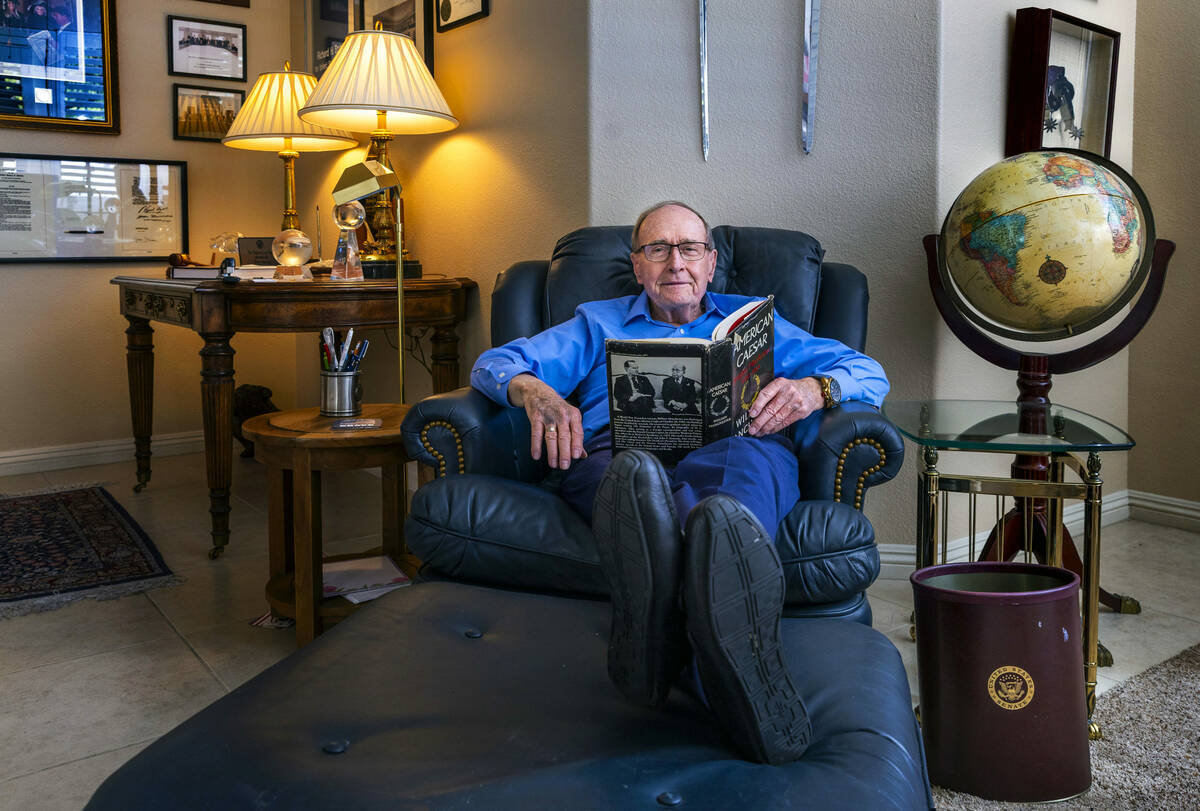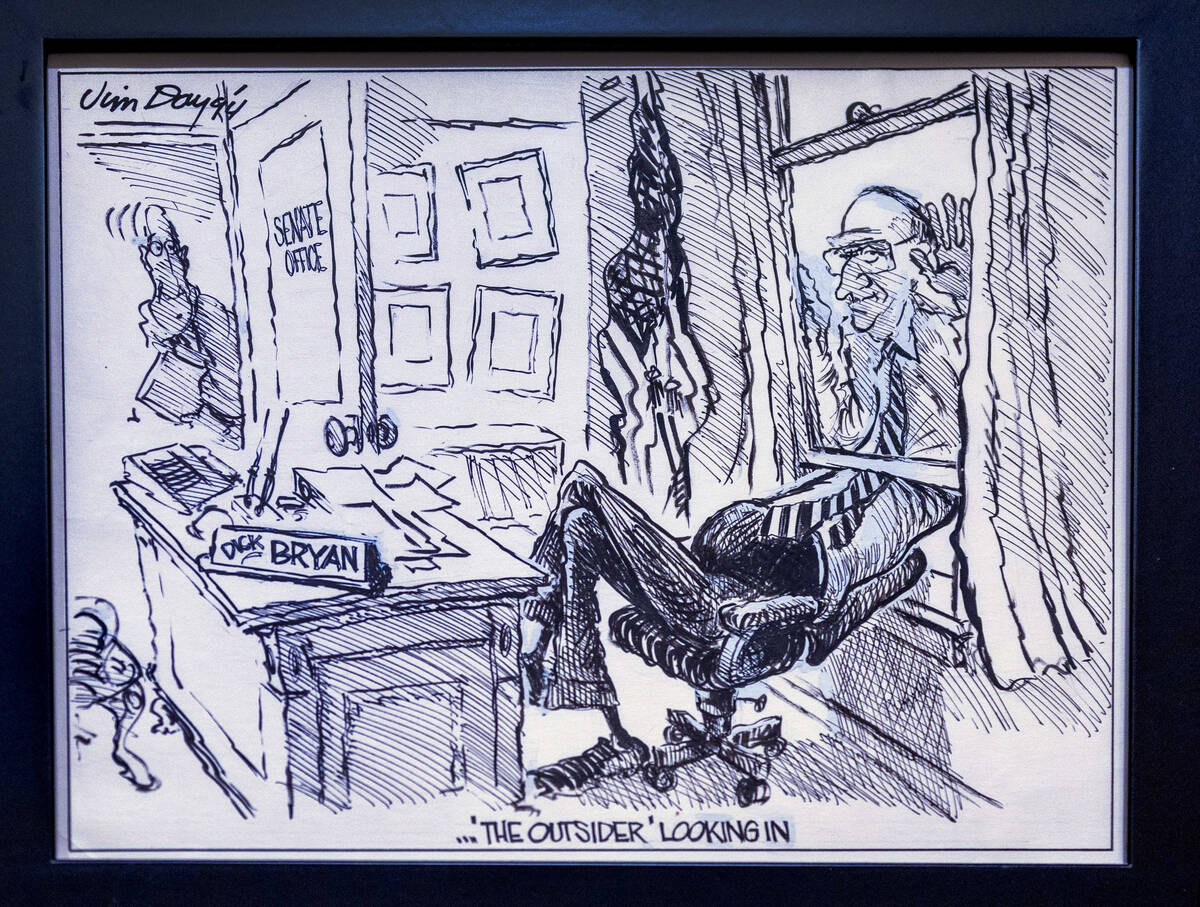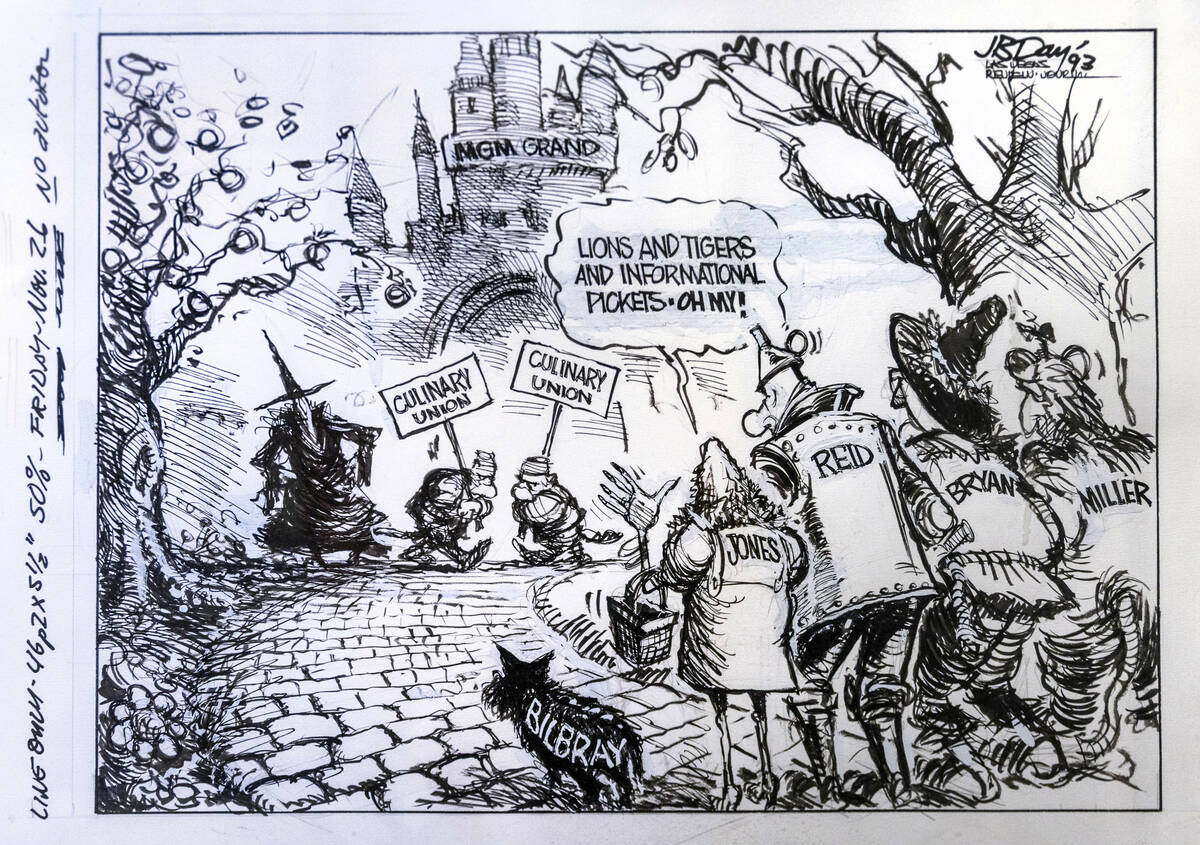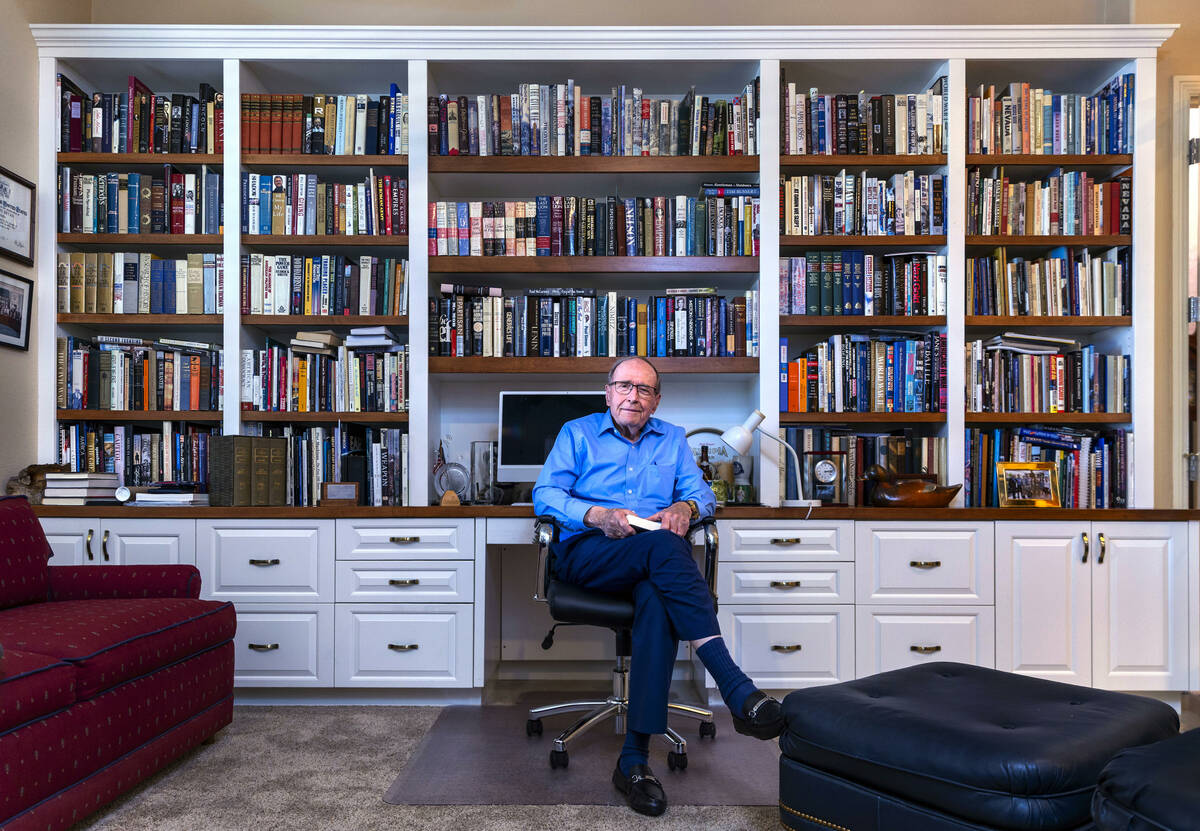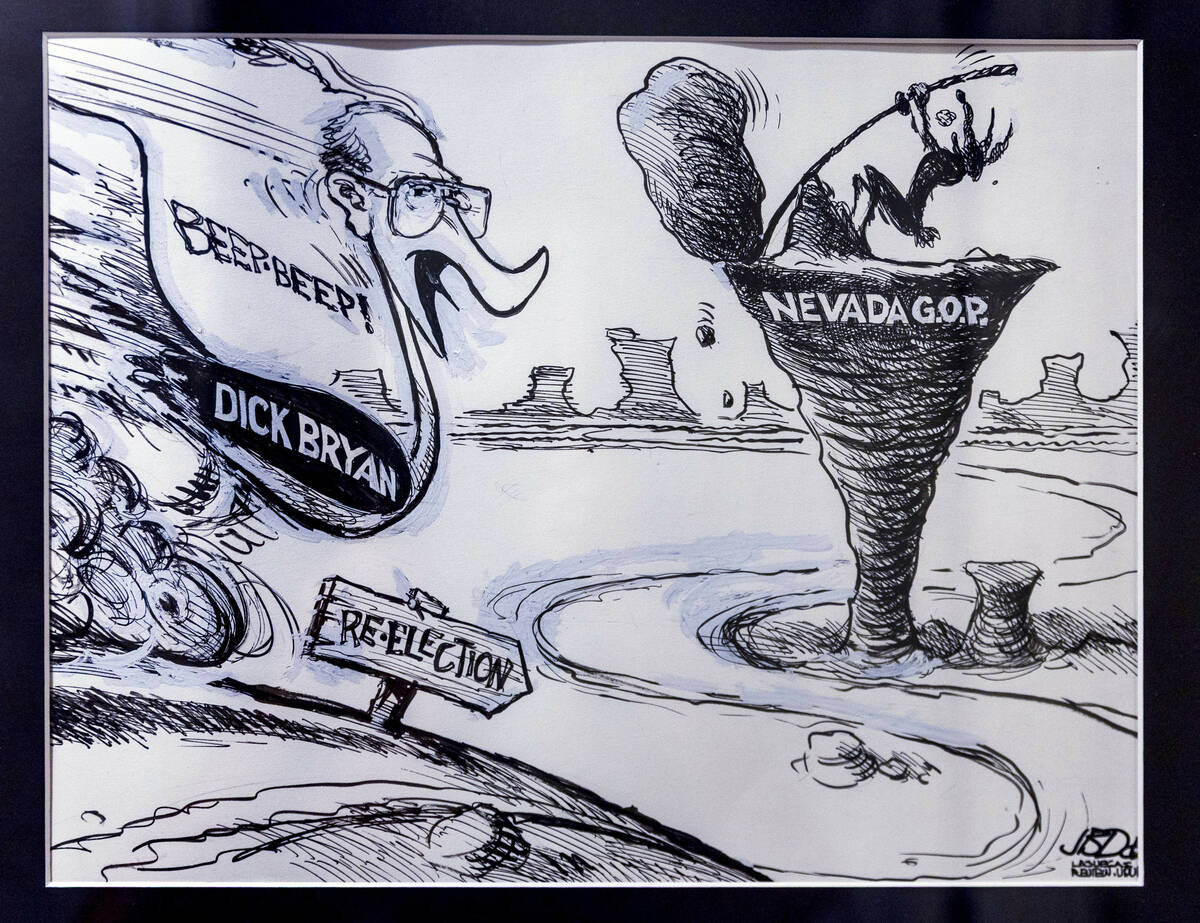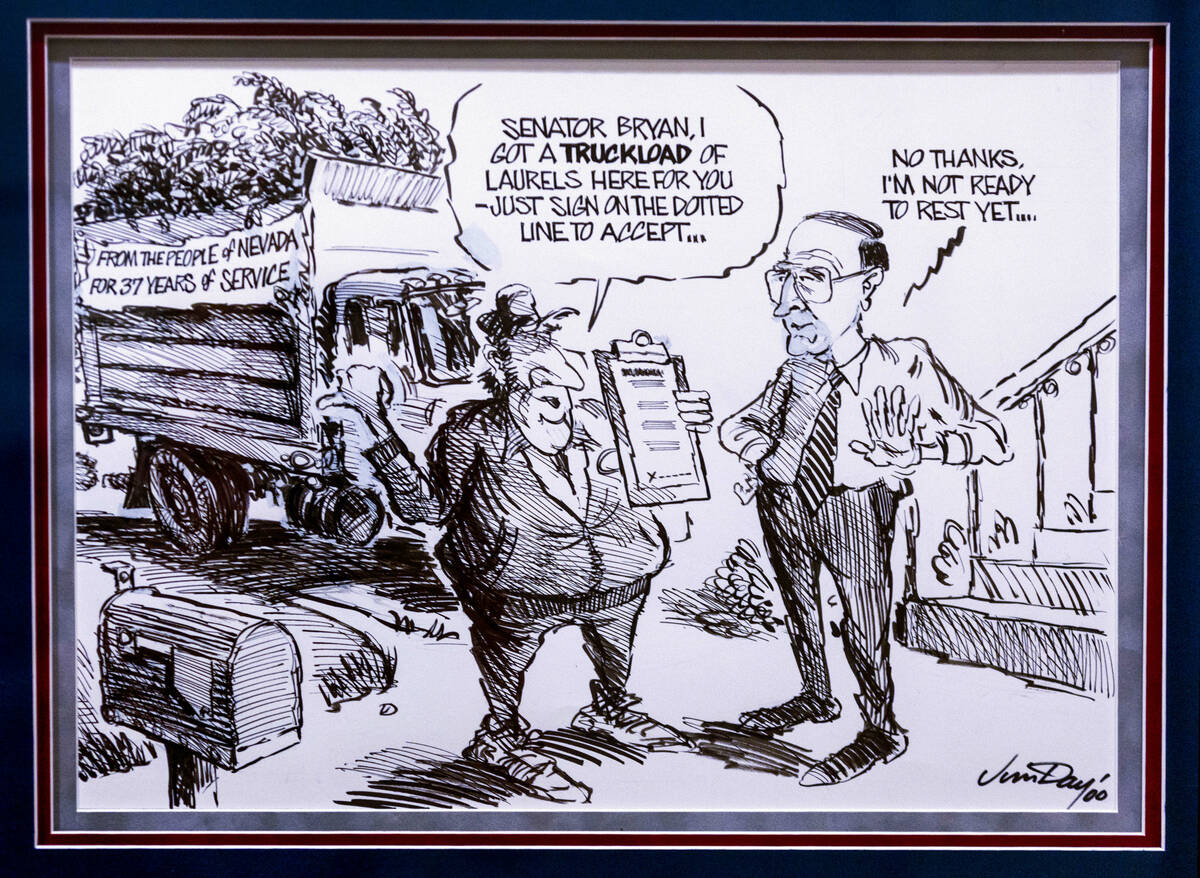Q&A with former Nevada Gov. and U.S. Sen. Richard Bryan
Former Nevada Gov. and U.S. Sen. Richard Bryan, 88, probably remembers your dog’s name, even if you told him years ago.
Throughout his nearly 60-year career, the Las Vegas Democrat earned a reputation for his steel-trap memory and an amiability that went beyond the standard political schmoozing. He could remember minute details about a colleague’s life, and he would make an effort to talk with every constituent if they came to visit him in Washington, D.C.
He showed off that sharp memory last year with his book, “My Life in Nevada Politics,” penned with author John L. Smith, that detailed his upbringing, his storied career in politics and how much Nevada has changed through the years.
“He still has that phenomenal memory and that great politician’s ability to not just remember you, but to know you,” said UNLV history professor Michael Green, who works with Bryan on a KNPR history series and on Preserve Nevada. “Some people have that, and some don’t. Boy, does he have it.”
The 88-year-old is still active, both in his personal life and in the community.
He remarried last year, visits his grandchildren often and serves on several state boards and organizations, including chairing the Commission on Nuclear Projects (which Bryan signed into law as governor in 1985) and the board of Preserve Nevada, as well as serving on the Commission for the Las Vegas Centennial and the Great Basin National Park Foundation.
His Summerlin home is packed with mementos from his life in public office — pictures of him shaking hands with Queen Elizabeth II and stepping off Air Force One alongside President Bill Clinton and the late Sen. Harry Reid. He sat down with the Las Vegas Review-Journal to talk about his life experience and what he thinks of current political events.
Here’s a snippet of the Review-Journal’s conversation with him, edited for brevity and conciseness.
What do you think of the current state of politics, and how does it compare to when you were in office?
A The polarization worries me. I did not know Congressman (Kevin) McCarthy from California, but he was thrown out by the Republicans because “he worked with the Democrats.” You got to work with the other side. My own experience was, you work with the other side, and there was much more collegiality.
The big difference is social media. I was blessed with having left before that was a factor. I voted against Bill Clinton on one of his big bills. God, he didn’t threaten me. That’s a big difference. No president has been as vindictive, and who has the ability because of his resources to put an opponent in your next race and provide all the political funding they’ll need to beat you. I never had to contend with that.
In your book, you recall first meeting Donald Trump in 1986 and not being impressed with him. What is your opinion of him now?
I think he’s a disaster, and what concerns me more than the man himself, which is himself a concern, (are) the three branches of government. I mean, in effect, the legislative branch doesn’t exist; it’s just an extension of the executive branch. And the Supreme Court seems to have given him most everything he wants, so there are really no guardrails.
How do you think Gov. Joe Lombardo is doing in his job?
I think he has a very difficult political path to navigate. I don’t think he agrees with Donald Trump on many of the things that Trump has done, but he also knows that Trump’s ire generates the MAGA group to rise up, so he’s got to navigate them and not go too far to the right.
But there’s a history in Nevada that I intend to honor. I have not criticized any of my predecessors, nor did any of my predecessors criticize me, so I don’t want to be critical of Lombardo in any way.
What do you think of Nevada electing Trump, the first Republican in 20 years to win the Silver State?
The Democratic Party failed. I think I would have to admit that. We have not connected with what was historically one of our strong base, and that’s average men and women who are working and who are not part of the so-called elite class, and Trump appealed to them.
I think another thing that’s hurt the issue are the cultural issues. And I think their position on a number of those was absolutely correct, but they paid a price for it, in my opinion. I think the cultural issues do not work in favor of Democrats in general.
Frankly, I think Kamala (Harris) being a woman was a factor. Kamala had a track record both as attorney general in California, and, you know, as a legislator and that helped. I think there is still a male macho image.
Considering your sponsorship of the Southern Nevada Public Lands Management Act of 1998, what are your thoughts on Rep. Mark Amodei’s failed attempt to sell public lands in Nevada through the reconciliation bill?
How many of those acres are potentially available for urban use and agriculture? It’s a small percentage. How much of it is potentially available? That’s the first question we have. And then, what process do we adopt? What priorities do we give the Southern Nevada Public Lands Management Act? I mean, priorities were to governmental entities, and the money from the sale, and this was a key point, that money stays in Nevada for federal or, you know, state and local government purposes. So that process, I think, needs to be developed, and I think the feds should make that available, if it meets the criteria.
Now, whether or not they will be able to persuade the Congress to let that money go back for state purposes, I don’t think they get that one on because, you know, I think our message to the Congress is this Nevada thing doesn’t amount to much. The Southern Nevada Public Lands Management Act, last time I checked, was over $3 billion.
Contact Jessica Hill at jehill@reviewjournal.com. Follow @jess_hillyeah on X.




